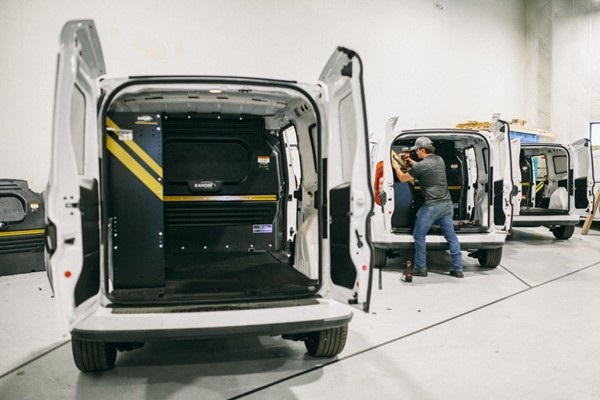|
|
 |
Fleet companies are shifting back to growth mode after slowing strategic investments into new fleet technologies to weather the past few years of uncertainty, according to a new report from Escalent, a top data analytics and advisory firm.
“Adoption of fleet technologies is certainly still at its infancy stages, but our research shows businesses are headed in the right direction for broader integration in fleets,” said Lucas Lowden, insights consultant and program lead of Fleet Advisory Hub™ at Escalent. “Fleet decision-makers are beginning to transition from survival mode, which came with lingering implications of the pandemic, to a growth stage—focusing on the ongoing evolution of technologies and seeking areas for putting them to use in business.”
READ MORE
|
Economic pressures, supply chain issues, and all of the common excuses we’ve grown used to hearing from the electric vehicle industry are to blame for GM’s decision to recant on its promise to offer the upcoming Chevrolet Silverado EV with a base price of $39,900 (before shipping).
Chevrolet recently revealed that its Silverado EV 4WT, prices for which start at $79,800, will offer 450 miles (724 km) of range, rather than the 400 miles (644 km) it initially estimated. Meanwhile, the slightly cheaper 3WT will have a range of 350 miles (563 km). These are intended as work trucks and will go to fleet operators.
via CarScoops
|
The nonprofit, clean transportation consortium CALSTART has launched a program to assist trucking fleets in making the transition to zero-emission vehicles, serving as an alternative to traditional formats such as websites, workshops, and mailers.
According to CALSTART, Cal Fleet Advisor (CFA) provides fleets with a single point of contact to help them navigate the process of identifying, financing, obtaining, and deploying zero-emission MHD vehicles for their businesses. It will also provide tracking and document-collection and -filing assistance to fleets, answer questions, offer advice and smooth the process in transitioning to zero-emission technologies.
via Supply Chain Quarterly
|
Ford may have committed to adopting Tesla’s EV charging connector, but that doesn’t mean the relationship is warming between the legacy automaker and the upstart.
Ford CEO Jim Farley indicated he doesn’t see the Tesla Cybertruck coming for his bread and butter of F-series pickup trucks. That’s because, as he puts it, the Cybertruck is “for Silicon Valley people.” Farley likened the Cybertruck to a “cool high-end product parked in front of a hotel,” adding, “I don’t make trucks like that. […] I make trucks for real people who do real work, and that’s a different kind of truck.”
Farley’s comment is unusual for automotive CEOs, who rarely directly acknowledge their competitors, much less criticize their products.
via The Drive
|
|
|
|
|

By Dave Bean, FMW Associate Editor
According to the recently released J.D. Power 2023 U.S. Initial Quality StudySM (IQS), overall satisfaction with vehicle quality continues its decline since 2021, primarily due to issues with technology and audio systems.
“The automotive industry is facing a wide range of quality problems, a phenomenon not seen in the 37-year history of the IQS,” said Frank Hanley, senior director of auto benchmarking at J.D. Power.
There is some good news to report, however. Automaker smartphone apps seem to have hit their stride, especially among EV owners who appreciate being able to evaluate vehicle range and charging time. In terms of 2023 IQS scores, Nissan recorded the highest-ranking model overall, the Nissan Maxima.
READ MORE
|
|

By Ken Robinson, Director of Product Marketing at Motus
Companies that utilize fleet vehicles have a lot on their plate as they struggle to navigate a challenging 2023 economy. Supply chain disruption, inflation, and rising fleet costs are among the ongoing challenges faced by fleet managers.
Vehicular costs are especially vulnerable to rising inflation. For day-to-day fleet management, this means increased fuel and repair cost.
There are a number of technologies available that can help mitigate these external pressures, including fuel management systems, artificial intelligence (AI) dashcams, and augmented or virtual reality technologies. A primary solution that fleet managers have turned to is the fleet mileage tracking app.
READ MORE
|
|

By Tanner Lee, Kingbee Vans
Fleet professionals continue to ask themselves if they should buy or lease vehicles, but they shouldn’t view the question in terms of one versus the other.
Most fleets finance their vehicles through a combination of buying and leasing because leveraging debt is a huge part of the growth equation.
And when vehicles aren’t available through traditional avenues, or when cashflow is tight, Kingbee provides vans right away, with new vans that are wrapped with your company’s branding and upfitted with shelves and racks.
READ MORE
|
|
|
|

